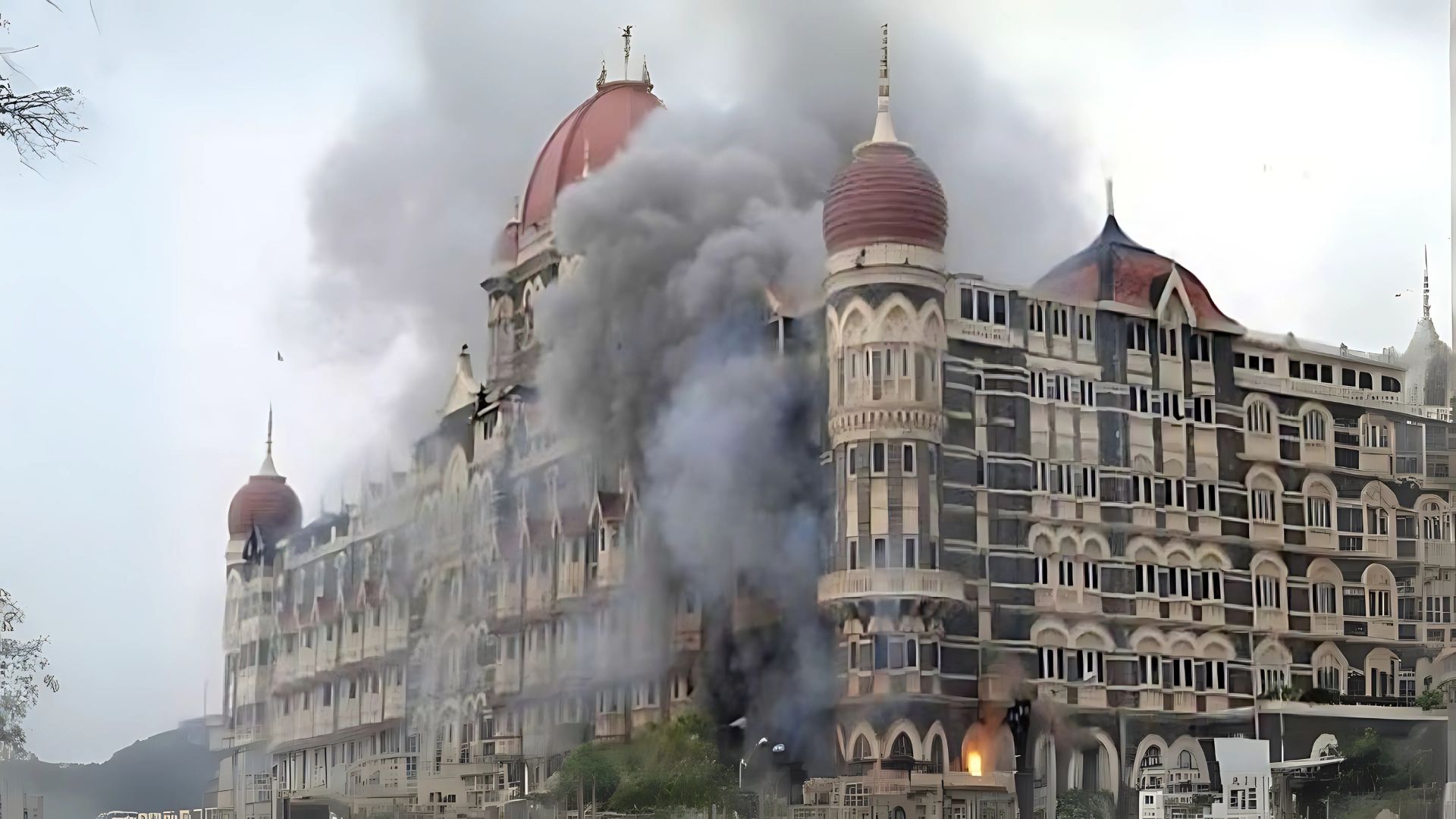Justice Delayed But Not Denied It has been almost 16 years since Mumbai bled. Sixteen years since the sound of gunfire and blasts shattered the complacency of security in India’s financial capital. Sixteen years since 175 innocent lives were taken away in a carefully planned massacre—one that was hatched from across the border but carried out on our streets.
And now, at last, one of the masterminds of that terror, Tahawwur Rana, is being brought to India for trial.
Table of Contents
The Night That Changed Mumbai Forever
Justice Delayed But Not Denied November 26, 2008, was like any other day. The city was alive with its characteristic chaos—commuters streaming through Chhatrapati Shivaji Terminus (CST), tourists arriving at the Taj Mahal Palace Hotel, and families having dinner at Leopold Café. But by evening, Mumbai was under attack.
Read more: Trump Tariff Roller coaster
Ten terrorists, trained and equipped by Pakistan’s Lashkar-e-Taiba (LeT), infiltrated the city through the Arabian Sea. For almost 60 hours, they terrorized—shooting at random, holding people hostage, and making luxury hotels into battlegrounds. When the smoke finally cleared, 166 were killed, including six Americans, and more than 300 were injured. Among those killed were young working professionals, seniors, tourists, and even a rabbi and his wife at the Nariman House Jewish community center.
The attack wasn’t just an act of terrorism; it was a message. A message that India’s enemies could strike at its heart with impunity.
The Web of Conspiracy: Rana and Headley’s Role
Justice Delayed But Not Denied For years, the probe found a chilling ring of conspirators. While the shooters were the face seen of the attack, the actual puppet masters were in Pakistan—supported by state actors. However, two names stood out in the global conspiracy web: David Coleman Headley (Daood Gilani) and Tahawwur Rana.
Headley, an American-Pakistani, was the surveillance man. He scoped out places, shot video, and offered crucial information to LeT. But he was not acting single-handedly. His boyhood pal, Tahawwur Rana—a Pakistani-born Canadian businessman—enabled him. Rana’s immigration advice agency covered Headley’s activities, and he was able to travel in stealth mode to plan the attacks.
After years of court battles, Headley was arrested in the US in 2009 and subsequently entered into a plea agreement, evading extradition to India. But Rana? He was just out of reach—until now.
The Long Fight for Extradition
India’s quest to get Rana brought to justice has been a test of patience, diplomacy, and legal determination. The UPA government started the ball rolling, going all out to work with US agencies to get an airtight case going. But extradition is never easy—particularly when geopolitics enter the picture.
Rana struggled tooth and nail to escape Indian courts. He appealed, stalled, and used every technicality of the law. But this week, the US Supreme Court slammed the door on his last resort. The outcome? He’s on a plane to Delhi, straight to Tihar Jail.
Read also: Rajasthan Police Constable Vacancy 2025
The Politics of Justice
Not surprisingly, the extradition has generated a political blame game. The Congress, whose tenure saw the attacks occur, is taking credit for setting the wheels in motion. Former Home Minister P. Chidambaram maintains that this is a product of “long-term diplomatic and legal efforts”—not a sudden breakthrough on the part of the present government.
On the BJP side, however, the party isn’t letting go of the chance. BJP MP Manoj Tiwari attacked previous governments as “soft” on terror suspects like Rana, suggesting that only with Modi in power did justice take center stage.
Reality check: This isn’t about taking credit—it’s about closure for the victims’ families.
Pakistan’s Predictable Denial
And all the while, Pakistan—as per usual—has distanced itself. Their Foreign Office was in a hurry to remind everyone that Rana is a Canadian (conveniently forgetting his Pakistani heritage). They say he hasn’t “upgraded his Pakistani documents in twenty years.”
Same old script. Deny, deflect, disown.
But the evidence is irrefutable. The 26/11 attacks were hatched on Pakistani territory, with state sponsorship. Rana’s extradition is a modest first step—but what of Hafiz Saeed? What of Zaki-ur-Rehman Lakhvi? These planners are still walking free in Pakistan, hailed as heroes.
What Happens Next?
Rana’s trial in India will be closely watched. Will he reveal more about ISI’s involvement? Will he implicate others? Or will this be another case where justice is slow, fragmented, and unsatisfying?
For the families of the victims, this is a crucial moment. Kia Scherr, who lost her husband and daughter in the attacks, once said, “Justice isn’t about revenge—it’s about accountability.”
After 16 years, accountability is finally within reach.
The Bigger Picture
Justice Delayed But Not Denied Rana’s extradition is a win—but it’s also a reminder of how long it takes. Terrorism lives in the interstices between legal systems, diplomatic dithering, and political posturing.
India needs to keep pushing. For Kasab’s handlers. For Headley’s sponsors. For every terrorist who thought that borders and bureaucracy could be used to hide behind.
Because Mumbai has not forgotten.
India has not forgiven.
And justice—no matter how delayed—will not be denied.
What do you think? Is Rana’s extradition a turning point or just a small step in a much longer battle? Let me know in the comments.






